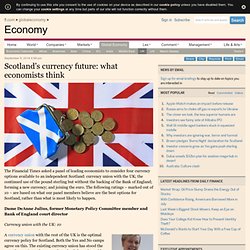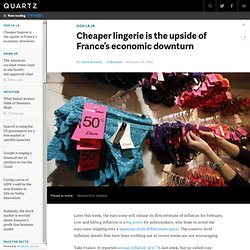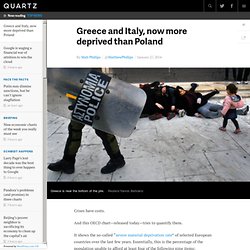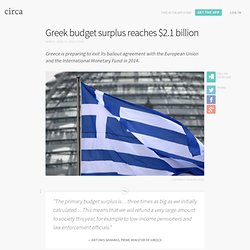

Scotland’s currency future: what economists think. The Financial Times asked a panel of leading economists to consider four currency options available to an independent Scotland: currency union with the UK; the continued use of the pound sterling but without the backing of the Bank of England; forming a new currency; and joining the euro.

The following ratings – marked out of 10 – are based on what our panel members believe are the best options for Scotland, rather than what is most likely to happen. Dame DeAnne Julius, former Monetary Policy Committee member and Bank of England court director Currency union with the UK: 10 A currency union with the rest of the UK is the optimal currency policy for Scotland. Both the Yes and No camps agree on this. If QE Came To Europe. At various times since the dark days of 2008, the Bank of Japan, Bank of England and Federal Reserve have all tried to jumpstart their economies by printing money with abandon to facilitate asset purchases of an unprecedented scale.

While the jury is still out on what the long-term effects of such quantitative easing might be, the worst fears of its critics — say, for example, hyperinflation — have not come to pass while many of the arguments of its supporters have been validated. Which raises the question: Why, if unemployment is stuck at 12 percent six years after the financial crisis began, has the European Central Bank not taken its own kick at the QE can? Could QE ever happen in Europe? Paris, deuxième ville la plus chère du monde pour un expatrié. Cheaper lingerie is the upside of France’s economic downturn - Quartz. Later this week, the euro zone will release its first estimate of inflation for February.

Low and falling inflation is a big worry for policymakers, who hope to avoid the euro zone slipping into a Japanese-style deflationary spiral. The country-level inflation details that have been trickling out in recent weeks are not encouraging. Take France. It reported annual inflation of 0.7% last week, but so-called core inflation, which strips out goods with volatile prices, gained only 0.1% in the month of January. In the details, the most eye-catching result was the 15.4% month-on-month plunge in clothing prices. PIB Espagne : activité se stabilise... Greece and Italy, now more deprived than Poland - Quartz. Crises have costs.

And this OECD chart—released today—tries to quantify them. It shows the so-called “severe material deprivation rate” of selected European countries over the last few years. Essentially, this is the percentage of the population unable to afford at least four of the following nine items: to pay their rent, mortgage or utility billsto keep their home adequately warmto face unexpected expensesto eat meat or proteins regularlyto go on holidaya television seta washing machinea cara telephone You can see how quickly deprivation rates have surged in European countries such as Italy and Greece, since those economies came under tremendous strain when the European debt crisis hit in 2010.
Now, it’s important to note that, while they’re at the epicenter of the European debt crisis, Italy and Greece aren’t the worst off in Europe. Moody's bumps up Greece's credit rating, cites stable outlook. World - Greece is preparing to exit its bailout agreement with the European Union and the International Monetary Fund in 2014.

"The primary budget surplus is… three times as big as we initially calculated… This means that we will refund a very large amount to society this year, for example to low-income pensioners and law enforcement officials. " Antonis Samaras, Prime Minister of Greece Greece's Prime Minister, Antonis Samaras, revealed in a Feb. 16 interview that the country's current budget surplus now stands at 1.5 billion euros (around $2.1 billion), which could allow the country to ease its austerity cutbacks. In Dec., Samaras said the country would not need any new loans. The EU and IMF first bailed out Greece with a 110 billion euro loan in 2010. Related Storyline On Circa Greece's parliament on July 25, 2013, passed the last piece of legislation required to receive 5.8 billion euros in bailout funds from the European Union and the IMF.
Related Storylines On Circa. Grèce : Troïka gèle prêt 1md€ La troïka des créanciers internationaux de la Grèce a différé sa mission à Athènes au mois de janvier et gelé le versement d'un prêt d'un milliard d'euros faute d'avoir obtenu la mise en oeuvre de réformes demandées, a annoncé samedi la Commission européenne. "Les discussions techniques vont se poursuivre à Athènes la semaine prochaine et nous espérons que les négociateurs pourront se rendre à Athènes en janvier, si les autorités ont réalisé des progrès dans la mise en œuvre des réformes", a expliqué dans un communiqué Simon O'Connor, porte-parole du commissaire européen aux Affaires économiques Olli Rehn.
Athènes et ses créanciers (UE, FMI et Banque centrale européenne) mènent depuis septembre des discussions difficiles sur certaines réformes litigieuses dont dépend le versement d'une tranche de prêt d'un milliard d'euros. Actualité internationale et européenne, les infos en direct sur euronews.